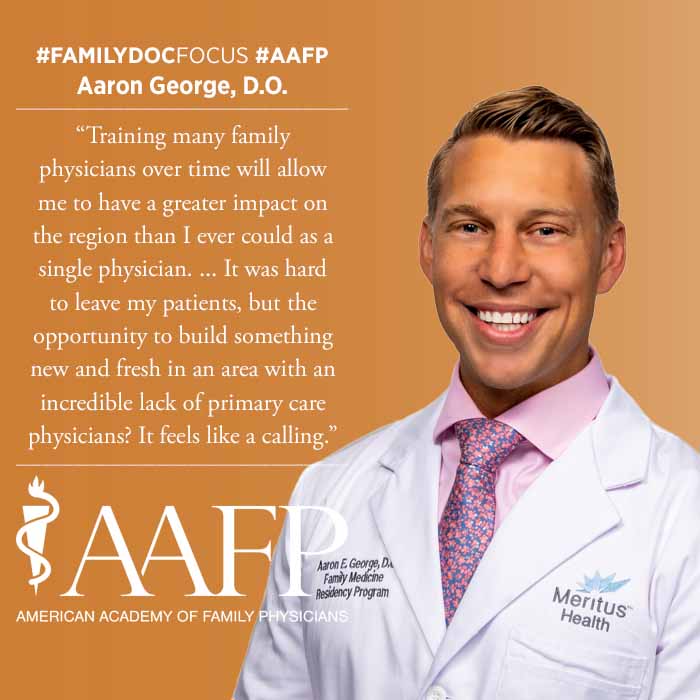Bringing Family Medicine's Past to Bear on Its Future
July 1, 2019 08:42 am David Mitchell – Dennis Mychak, M.D., was only 51 when he died from amyotrophic lateral sclerosis, but he made an impact on the small, Pennsylvania coal mining town where he grew up and to which he later returned to practice family medicine.
He also made a lasting impression on Aaron George, D.O., who was just 11 years old when he attended his uncle's visitation.
"Everyone knew him," George said. "He was a community icon. Hundreds of people were lined up down the block for the viewing. I thought, 'This is how you make an impact on people's lives.' It was crystal clear to me that family medicine was unparalleled in touching people's lives."
After completing his training at the Duke Family Medicine Residency Program in Durham, N.C., in 2015 (which included a global health rotation in Vienna, Austria), George -- like his uncle -- returned to his small hometown in Pennsylvania to practice family medicine. His clinic was a mile away from his boyhood home, and his patient panel included his high school principal, his priest and old friends.
"I poured my heart into the expectation that I was going to be there for a long time to serve them," he said. "I thought I would be there for 40 years. There's something really special about the bond you form with the community you grow up in."
Last year, however, George was approached with an opportunity to help launch a new family medicine residency program just 20 miles away, across the state line in Maryland.
"We don't have a primary care training program near my hometown, and there is a shortage of primary care physicians in the area," he said. "This was chance to create a pipeline for the region."
George said the decision to leave was difficult -- although some patients have followed him to his new location -- but he was motivated to go where he could do the most good.
"Training many family physicians over time will allow me to have a greater impact on the region than I ever could as a single physician," he said. "It made sense. It was hard to leave my patients, but the opportunity to build something new and fresh in an area with an incredible lack of primary care physicians? It feels like a calling."
The first class of six interns started June 24 at the Meritus Family Medicine Residency Program in Hagerstown, Md. George is the assistant program director and director of medical education.
George also is an associate clinical professor at the Penn State College of Medicine in Hershey, Pa. In addition to teaching students in his clinic, he leads a course for fourth-year medical students on the history of medicine. His knowledge of and interest in that topic have served him well during the development of the new residency program.
A board member of the Family Medicine Education Consortium, George is one of a handful of people associated with that organization who are collecting oral histories from the specialty's founders. He said the idea is to speak with those early leaders about what their original vision was, examine the current state of health care and use their insights as a compass for the future.
George said that project was inspirational while he was working to develop the new residency program.
"The fundamental purpose isn't just to check the Accreditation Council for Graduate Medical Education's boxes but to train family physicians who are adept at meeting the needs of society, mankind and their communities," he said. "We want to fill their black bags with new tools, like telemedicine, point-of-care resources, population health and big data."
And, in yet another sort of challenge, George will be one of the mainstage speakers July 25 during the National Conference of Family Medicine Residents and Medical Students in Kansas City, Mo. Fortunately, should he need inspiration as he works on his presentation, he need look no further than the photo of Uncle Dennis on his desk.
